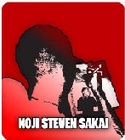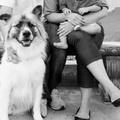The first lesson I want to teach my son is that there are idiots in the world. Lots of them. And just because you teach a class in college or you have a degree does not mean you are not an idiot. Don’t get me wrong, this is not to say that ALL professors and people who have degrees are idiots but some of them are.
Roger Lotchin, an alleged professor of history at the University of North Carolina, is one of them. In his opinion piece, “There were no concentration camps in America”, he seems to ignore history and perpetuate lies that have been refuted for more than 25 years.
As a public service and to set the public record straight, I will refute point by point his “arguments”:
Roger: As you probably know, the Japanese-Americans on the West Coast were evacuated from their West Coast homes to camps in the interior West and Arkansas. That was done as a national security measure because the U. S. government doubted the loyalty of many of the “Nikkei,” as the group was then called, and feared the military prowess of the Imperial Japanese Navy.
That was the official story. However, you ignore the Munson Report, which was commissioned by the Executive Branch of the Federal Government that made clear that Japanese Americans were NOT disloyal. Click here for more information about the Munson Report.
Roger: The point of the museum is to prove that the camps were “concentration camps” and that they were established because of racism. Neither charge is true and neither has ever been proven.
If Roger looked into the record, he would see that the President, other government officials, and the military referred to the camps as concentration camps. But to his second point, there was a report found by researcher/activist and personal hero Aiko Herzig-Yoshinaga written by General DeWitt that clearly showed the racist views held by the government during WWII toward Japanese Americans. To quote the report, “the Japanese race is an enemy race.” In addition, the report was proof that the government had withheld vital information, destroyed evidence, falsified evidence and perjured itself in front of the Supreme Court.
Roger: It is beyond question that many of the first generation Nikkei (a term comprising all Japanese-Americans) were loyal to Japan and some even went so far as to repatriate themselves to that country during the war and many more stated their intention to do so.
It is not beyond question that “Nikkei” were loyal to Japan. But before I get into the repatriation issue, I’d like to first define Nikkei for Roger. Nikkei is a Japanese word that means Japanese migrants and their descendants.
The repatriation issue just shows Rogers lack of understanding of basic history. I could on and on about why some Japanese Americans decided to repatriate but let’s just say that if most people were put in the shoes of Japanese Americans during World War II (forced out of their homes and forced to live in remote prisons because of their race) they would wonder if it was best to stay in the country.
Roger: How many Japanese-Americans were disloyal is not known, but I have never read a piece of evidence from a reliable witness which said that all of them were loyal.
Read the Munson Report, Roger. Also, the theory that we couldn’t be sure that ALL Japanese Americans weren’t disloyal is crazy. If that were true, we should have locked up all German Americans and Italian Americans; since there was no way we could guarantee that ALL of them were loyal. If all German and Italian Americans weren’t sent to camps, why were the Japanese? Dare I say, racism?
Roger: Racism, as it was understood at the time, meant a belief in the biological inferiority of a group. I have never read a shred of evidence that shows that either the American or western publics in general or the decision makers who decided on the camps thought that the Japanese here or in Japan were biologically inferior. Anti-Japanese feeling certainly was present, but not biological racism. Americans and westerners were angry about the attack on Pearl Harbor and the subsequent Pacific War, in which their sons might have to fight and die, but their anger was mostly nationalist, not racist.
Really? Biological racism? I can imagine someone telling me they aren’t a biological racist, just a regular racist. Anyway, ignoring that argument, if America’s anger was purely nationalist and not racist, why not also send all the German and Italian Americans as well? Roger? Are you still there?
Roger: And the field of Japanese relocation history is a part of a much larger sub-field of American history that seeks to paint America as a fundamentally racist place.
Koji: hmm… Slavery. Native Americans. Do I need to go on?
There is a lot more but I’m tired of refuting every single sentence Roger wrote. If he had a shred of integrity he would retract his “article.” However, I know he won’t so I won’t ask him to. But I would like to thank him. Because it is people like him that push me to continue to tell the story of Japanese Americans, not only so people don’t forget, but more importantly to make sure it doesn’t happen to others – Asian American or otherwise.
By the way, to find out more information about Roger here is his facility page.
* This article was originally published on 8Asians.com on October 9, 2012.
© 2012 Koji Steven Sakai







